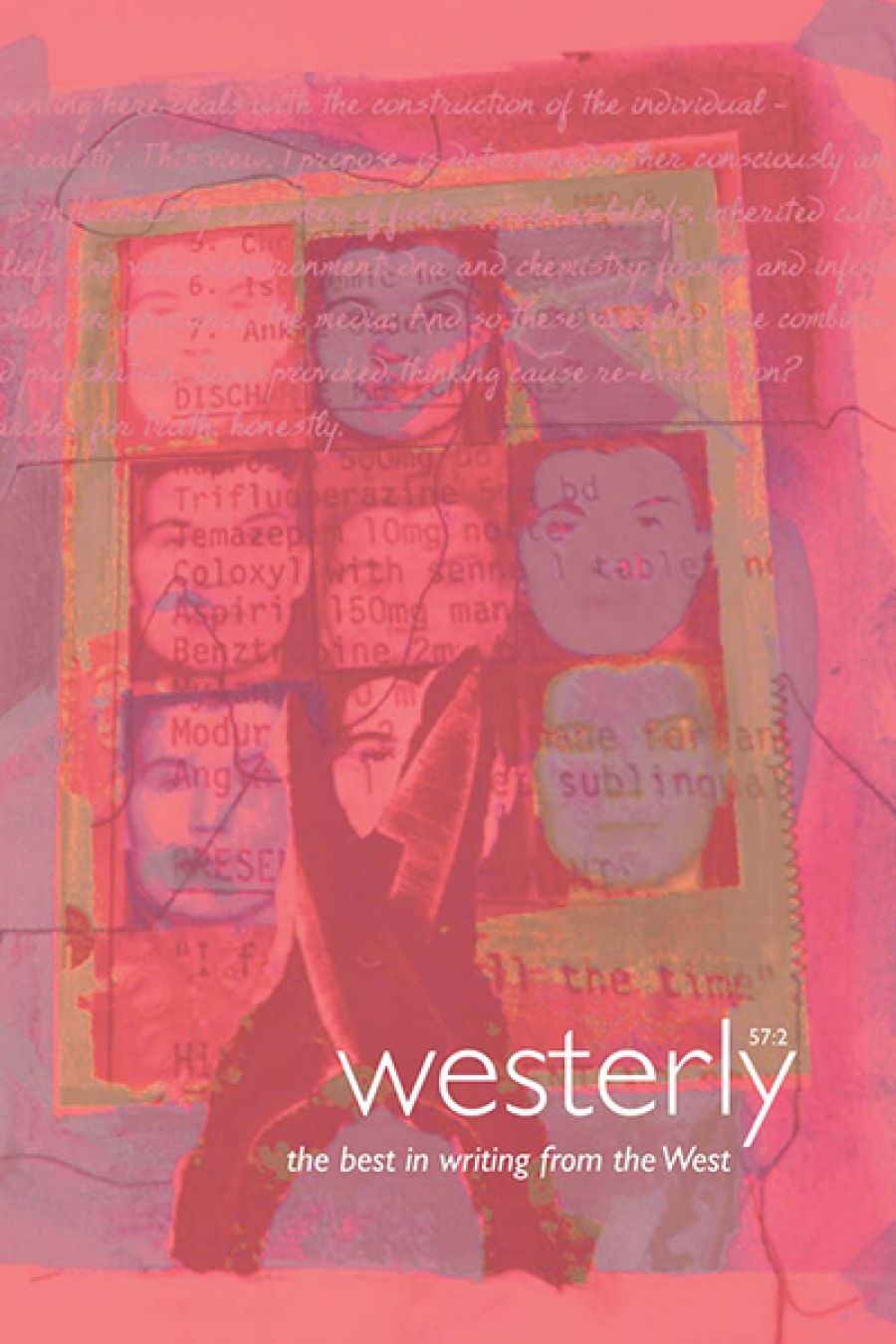
- Free Article: No
- Contents Category: Anthology
- Custom Article Title: Anthony Lynch reviews Westerly Vol. 57, No. 2, edited by Delys Bird and Tony Hughes-d’Aeth
- Review Article: Yes
- Article Title: Anthony Lynch reviews Westerly Vol. 57, No. 2, edited by Delys Bird and Tony Hughes-d’Aeth
- Online Only: No
- Custom Highlight Text:
‘Tell me about it: you can trust me. I’m a writer.’ This ‘cautionary joke’ – one of few in this sober volume – cited in an essay by Frank Moorhouse, could be an epigraph for the latest Westerly. Editors Bird and Hughes-d’Aeth asked a selection of writers to share their thoughts on the ethics of writing. The ensuing essays include depictions of the past and of family in non-fiction, and play off each other interestingly. Kim Scott, Tiffany Shellam, and Clint Bracknell reflect on the Indigenous experience of colonisation. Scott offers a letter of sorts to an unnamed prison inmate, the result characteristically self-reflexive. Shellam delves into the archives to deconstruct the ‘friendly frontier’ trope, and Blaze Kwaymullina, in a metaphorically laboured appropriation of an appropriation, builds poems from the rearranged words of colonial archival documents.
- Book 1 Title: Westerly Vol. 57, No. 2
- Book 1 Biblio: Westerly Centre, $29.95 pb, 193 pp
Alison and Graham Kershaw tell how they, too, literally, shift text around by way of their letterpress. At the opposite end of communications technology, Benjamin Law surveys the banalities of social media. Moorhouse, Rachel Robertson, Alice Pung, and Rozanna Lilley each provide thoughtful reflections on writing about family.
Many poems in this issue perpetuate the recent trend of recording the natural world, and birdlife in particular, but they come from some fine practitioners – Diane Fahey and Ross Donlon among them. John Kinsella’s poem about a storm could be read as a companion piece to his bushfire poem that was shortlisted in the 2013 Porter Prize. Maria Takolander and Eabhan Ni Shuileaháin move into very different territory with potent images of personal tragedy.
Of the fiction, Lucy Neave and Marcella Polain offer strong stories dealing with human–animal relations – works also dealing with ethics, if not the ethics of writing. Laurence Steed’s compelling story of boyhood recalls Patrick McCabe’s The Butcher Boy (1992).


Comments powered by CComment